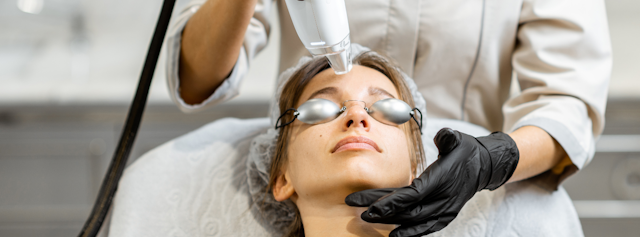Discover the latest advancements in acne scar treatments and find out which option is best for you in this comprehensive guide.
Understanding Acne Scars: Types and Causes
Acne scars can be a frustrating reminder of past breakouts. Understanding the different types of acne scars and their causes is essential in finding the right treatment.
There are several types of acne scars, including atrophic scars, hypertrophic scars, and keloid scars. Atrophic scars are the most common type and are characterized by depressions or pits in the skin. They occur when there is a loss of tissue during the healing process. Hypertrophic scars are raised scars that occur when there is an overproduction of collagen during the healing process. Keloid scars are similar to hypertrophic scars but extend beyond the original wound.
The causes of acne scars can vary. Inflammatory acne, such as cysts or nodules, are more likely to cause scarring. Picking or popping pimples can also increase the risk of scarring. Additionally, genetics and skin type can play a role in the development of acne scars.
Non-Invasive Acne Scar Treatments: What You Need to Know
Non-invasive acne scar treatments are a popular choice for those looking to improve the appearance of their skin without undergoing surgery. These treatments are typically less painful and have shorter recovery times compared to more invasive procedures.
Some common non-invasive acne scar treatments include laser therapy, chemical peels, microdermabrasion, and dermal fillers. Laser therapy uses focused beams of light to target and break down scar tissue. Chemical peels involve applying a chemical solution to the skin to exfoliate and promote the growth of new, healthy skin. Microdermabrasion uses a handheld device to gently exfoliate the top layer of skin, reducing the appearance of scars. Dermal fillers are injectable substances that can temporarily plump up depressed scars.
It's important to note that while non-invasive treatments can improve the appearance of acne scars, they may not completely eliminate them. Multiple sessions may be required to achieve the desired results.
Medical Procedures for Acne Scar Removal: A Closer Look
For more severe or stubborn acne scars, medical procedures may be necessary. These procedures are typically performed by a dermatologist or a plastic surgeon and may require local anesthesia.
Some common medical procedures for acne scar removal include punch excision, subcision, dermabrasion, and laser resurfacing. Punch excision involves removing individual acne scars and suturing the wound closed. Subcision is a technique that involves breaking up scar tissue beneath the skin to promote collagen growth. Dermabrasion uses a rotating device to remove the top layers of skin, revealing smoother skin underneath. Laser resurfacing uses laser beams to remove the outer layer of skin and stimulate collagen production.
It's important to consult with a qualified healthcare professional to determine which medical procedure is best suited for your specific acne scars.
At-Home Remedies for Acne Scars: Do They Work?
There are various at-home remedies that claim to improve the appearance of acne scars, but their effectiveness may vary.
Some popular at-home remedies for acne scars include applying lemon juice, honey, aloe vera, or apple cider vinegar to the affected areas. These natural ingredients are believed to have skin-healing properties. However, it's important to note that scientific evidence supporting the effectiveness of these remedies is limited.
If you're considering trying at-home remedies for acne scars, it's important to do a patch test first to check for any adverse reactions. It's also a good idea to consult with a dermatologist for personalized advice and guidance.
Choosing the Right Acne Scar Treatment for You
Choosing the right acne scar treatment can be overwhelming, but understanding your options and consulting with a healthcare professional can help you make an informed decision.
Factors to consider when choosing an acne scar treatment include the type and severity of your scars, your skin type and sensitivity, your budget, and your desired downtime. It's important to have realistic expectations and understand that not all scars can be completely eliminated.
Consulting with a dermatologist or a plastic surgeon is crucial in determining the most suitable treatment option for your specific acne scars. They can assess your skin condition, discuss the potential risks and benefits of each treatment, and create a personalized treatment plan tailored to your needs.
Book a free consult right now
Related Services
Solutions
Acne
Blackheads
Oiliness
Clogged pores
Whiteheads
Solutions
Fine Lines & Wrinkles
Skin Laxity
Sun Damage
Age Spots (Solar Lentigines)
Acne Scars
Solutions
Full Face
Upper Lip
Chin
Side Burns
Hair Line
Solutions
Skin Ink Reversal
Unwanted Tattoos
Faded Tattoos
Tattoo Color Correction
Allergic Reactions to Tattoo Ink






